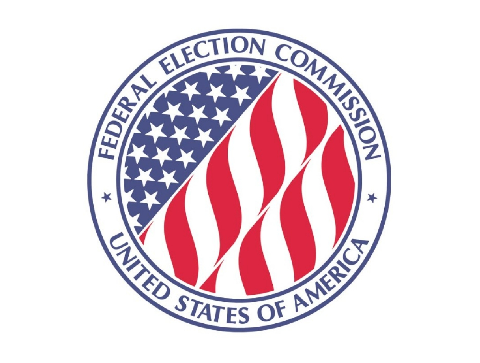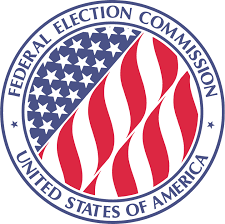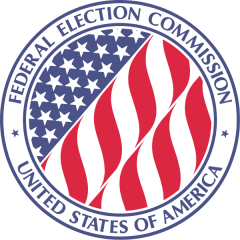Re: REG 2023-01 (Supplemental notice of proposed rulemaking; Notice 2022-20; 87 Fed. Reg. 236)
Dear Ms. Rothstein, Ms. Waldstreicher, and Mr. Buckley:
On behalf of the Institute for Free Speech (“IFS”), I submit these comments in response to the Commission’s Supplemental notice of proposed rulemaking on “Technological Modernization” 87 Fed. Reg. 236 (Dec. 9, 2022).
If the phrase “promoted for a fee” is added to §§ 100.26 and 110.11(c)(5)(i) by placing it after the phrase “placed for a fee” as apparently suggested by the proposed rulemaking, the regulation would be impermissibly vague for the reasons explained later in these comments.
However, if the phrase is clarified, it could be easily understood and we would have no objection to adding this language to the current regulation, as modified by the Commission’s adoption last month of Agenda Document 22-52-B (REG 2011-02, Final Rule and Explanation and Justification for Internet Communication Disclaimers).
Here is one way the phrase could be clarified in the context of the current regulations to remove the ambiguity:
§ 100.26:
The term general public political advertising shall not include communications over the internet, except for communications placed for a fee on another person’s website, digital device, application, or advertising platform or communications promoted for a fee paid to another person’s website, digital device, application, or advertising platform.
§ 110.11(c)(5)(i):
For purposes of this section, internet public communication means any public communication over the internet that is placed for a fee on another person’s website, digital device, application, or advertising platform or communications promoted for a fee paid to another person’s website, digital device, application, or advertising platform
If such a clarification is not made, then the Commission’s misleadingly titled “Technological Modernization” does little to clear up the ambiguity in the phrase. The Commission’s recently revised rules for disclaimers on internet communications do not require additional “modernization.” Therefore, the Commission should close this rulemaking without adopting any additional regulations.
In the alternative, if the Commission is intent on going down this path (it should not), it should republish this “Technological Modernization” notice as an advance notice of proposed rulemaking (ANPR) with more than 30 days to submit comments. After receiving comments on such an ANPR, it should then publish a notice of proposed rulemaking with a clearer proposed regulation for public comment.
I. The Commission’s Supplemental Notice is a Substantive Rulemaking Proposal, Not a “Technological Modernization”
The late Justice Scalia wrote, “Congress . . . does not, one might say, hide elephants in mouseholes.” Whitman v. American Trucking Associations, 531 U.S. 457, 468 (2001). Nor should the FEC.
The Commission’s labeling of this supplemental notice of proposed rulemaking as a “Technological Modernization” and claim that it would “modernize the agency’s regulations in light of technological advances in communications, recordkeeping, and financial transactions” or “eliminate and update references to outdated technologies and address similar technological issues” is incorrect and would not comply with the Administrative Procedure Act (APA).
This proposal is not a “technological modernization” akin to updating references from fax machines to email. It is a substantive rule that has the potential to greatly expand the FEC’s regulation of internet communications. It should be treated as such to ensure that the public has ample opportunity to comment and that any adopted rule is carefully crafted.
II. The Phrase “Promoted for a Fee” is Impermissibly Vague and Potentially Overbroad
Vague laws chill speech because people of ordinary intelligence must necessarily guess what they mean and may differ in their understanding of their application. See Citizens United v. Federal Election Commission, 558 U.S. 310, 324 (2010). The Commission’s purported “Technological Modernization” does not define the phrase “promoted for a fee.” This is problematic because the meaning of “promoted for a fee” is not obvious.
Now, many people will probably think, “promoted means like a promoted tweet, where I’m paying Twitter to amplify this message.” But it’s not clear if that’s what the Commission means. For example, does “promoted for a fee” include statements by paid workers (employees), such as a communications director, social media director, or campaign manager? If so, how would the Commission distinguish which communications are “promoted for a fee” and which are just the personal speech of a campaign official? Would a campaign manager or communications director need to provide a disclaimer for every tweet, retweet, or liked tweet that encourages people to vote for their candidate? What about campaign consultants? Or is it meant to cover only internet-enabled services such as virtual reality applications?
The Commission’s effort to address this confusion only highlights the inherent vagueness problem in the proposed rule. The Commission requested comment on whether:
…[a] distinction should be made between communications over the internet where (1) a person is paid to republish content containing express advocacy or soliciting a contribution on a third party’s website, digital device, application, or advertising platform in order to increase the circulation or prominence of that content; (2) a website, digital device application, or advertising platform is paid directly to ‘boost’ or expand the scope of viewership of content containing express advocacy or soliciting a contribution in order to increase the circulation or prominence of that content; and (3) a person is paid to create or generate content containing express advocacy or soliciting a contribution, which then appears on a third party’s website, digital device, application, or advertising platform.
Technological Modernization, 87 Fed. Reg. 75518 (proposed Dec. 9, 2022).
These are all good questions for the Commission to consider before adopting the regulatory language. But the fact that the same regulatory language – “promoted for a fee” – can include all, some, or none of these distinct categories highlights the fact that it is an inherently vague phrase in this context.
III. The Purported “Technical Modernization” Should be Treated as an Advanced Notice of Proposed Rulemaking
The Commission is attempting to put the cart before the horse by running forward with the new regulatory language before even the Commission (let alone potential speakers) knows what it means. The questions the Commission asks are basic questions about what the Commission is trying to accomplish. They should be answered — and the Commission should tailor its regulatory language appropriately to the answers — before going to the public with a notice of proposed rulemaking (“NPRM”).
An NPRM is supposed to provide the public with an opportunity to comment on specific regulatory language and the fit between the proposed language and stated goals. The Commission’s proposal is not sufficiently developed to fulfill the purposes of an NPRM and provide the public with a meaningful opportunity to comment. Accordingly, the proposed “Technical Modernization” should be treated as an advanced notice of public comment and the Commission should seek public input on specific regulatory language that is tied to specific regulatory goals before seeking to finalize any rule.
IV. The Commission Should Draw Distinctions Between the Three Categories Described in the “Technical Modernization” Proposal
As described above, the Commission identified three categories of speakers and asked whether it should draw distinctions between them for purposes of internet disclaimers. Simply put, it should.
First and most importantly, the third category, “a person is paid to create or generate content containing express advocacy or soliciting a contribution, which then appears on a third party’s website, digital device, application, or advertising platform,” should not be added to § 100.26 because it would effectively end the Commission’s internet exemption by regulating content production costs. Technological Modernization, 87 Fed. Reg. at 75519. Such an attempted interpretation is not new and was rightly rejected by the Commission before. See e.g. MUR 6729 (Checks and Balances for Economic Growth) (Statement of Reasons of Chairman Lee E. Goodman and Commissioners Caroline C. Hunter and Matthew S. Petersen). Renewed efforts to eviscerate the internet exemption should be rejected again for the same reasons: “a shift in course . . . could threaten the continued development of the Internet’s virtual free marketplace of political ideas and democratic debate.” MUR 6729 at 5.
Second, the Commission should make additional distinctions regarding its first category, people paid to republish content on a third party’s website. There are two problems with the Commission’s description of this category. First, on its face, it could also apply to employees or contractors who are paid to post messages in the name of a speaker, such as employees posting communications on a corporate or labor union social media account. Like the Commission’s third category, this would effectively gut the internet exemption by regulating production costs and should be rejected. This category also lacks a distinction between being paid to advocate for a candidate generally in one’s own words or images and being paid to promote specific or specifically authorized campaign messages. The latter would likely fall within the existing internet disclaimer requirements. The former would create many of the problems described in section II, supra, by allowing for little or no distinction between a political committee employee’s personal and professional speech.
Finally, the Commission should also make additional distinctions regarding its second category of activity, payment to “boost” or expand the scope of viewership for certain communications. There are at least two ways content can be boosted or the scope of viewership can be expanded: speakers can pay to boost specific messages of others, such as a newspaper endorsement, or speakers can pay for enhanced status that boosts all of their content, as Twitter has recently proposed. See Ashley Belanger, You get what you pay for; Musk floats several gimmicks to make Twitter profitable, ARS Technica, (November 11, 2022) https://arstechnica.com/tech-policy/2022/11/musk-floats-several-gimmicks-to-make-twitter-profitable/. The Commission should distinguish these two approaches for internet communications.
Paying a third-party internet platform directly to boost a specific express advocacy message or solicitation would appear to fall within the existing internet disclaimer requirements, concerning communications placed for a fee on the website of another.
Regulating all express advocacy posts by any person who paid for some enhanced status that is not tied to a specific communication would be overbroad, greatly expand the Commission’s regulation of internet activity, and ultimately deter the free expression of views over the internet. For example, imagine Twitter goes forward with its plan to provide increased visibility for any “blue check” account and to require everyone to pay $8 or more for the privilege of having a blue check mark by their name. The result would be that every time anyone with a blue check mark – which is to say a high percentage of high-profile Twitter users – engages in express advocacy, they would need to include a disclaimer and potentially report their speech to the federal government. This would drastically inhibit the ability of citizens to discuss candidates on social media platforms. It would also potentially transform many foreign nationals – who are prohibited from making expenditures – into criminals for commenting on U.S. elections on social media. That may not sound like such a bad outcome to some people until you remember that a fair number of high-profile journalists, political commentators, and satirists are not U.S. citizens, and would have their speech criminalized by this sort of proposal.
V. Conclusion
We appreciate the opportunity to comment on this matter. Unfortunately, the Commission’s regulatory proposal is not a mere “technological modernization” and is not ready for adoption.
As the discussion above illustrates, the phrase “promoted for a fee” is vague and potentially overbroad. Worse, it does not appear that even the Commission (let alone the public) knows what it is intended to mean, with some potential interpretations dramatically expanding the Commission’s regulation of common internet communications. This is a recipe for litigation and chilled speech.
The Commission should allow its newly enacted internet disclaimer rule to take effect and observe its impacts before trying to adopt additional regulations. If the Commission is disinclined to do so, it should at minimum clearly define its goal and the relevant regulatory language and give the public an additional opportunity to comment on the advisability and fit between the two before rushing forward.
Respectfully submitted,
David Keating














